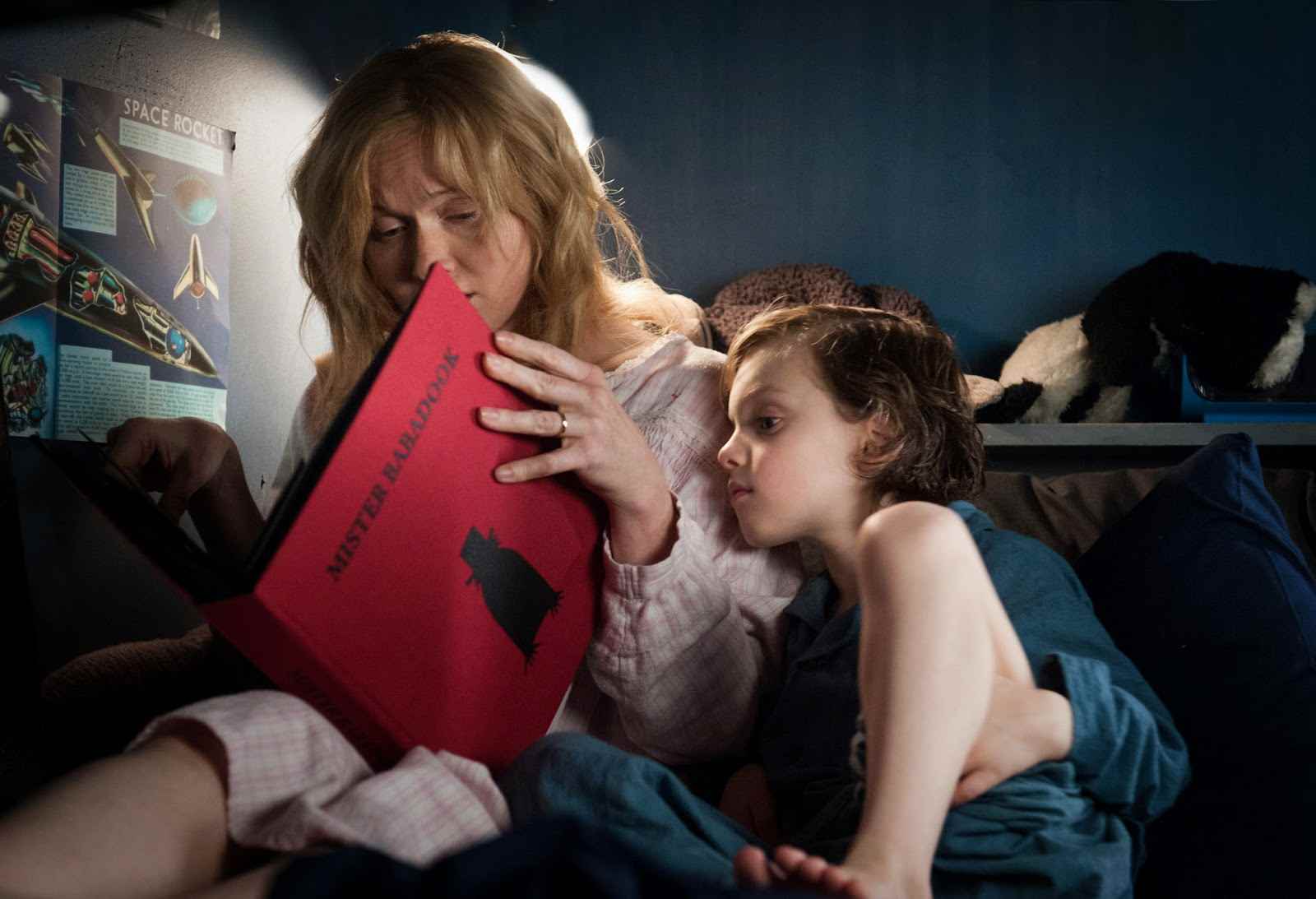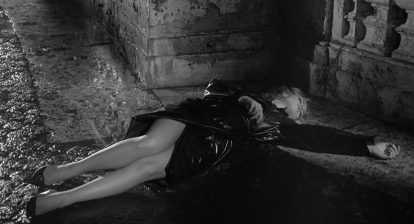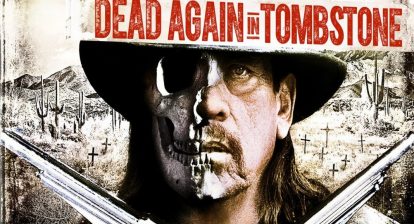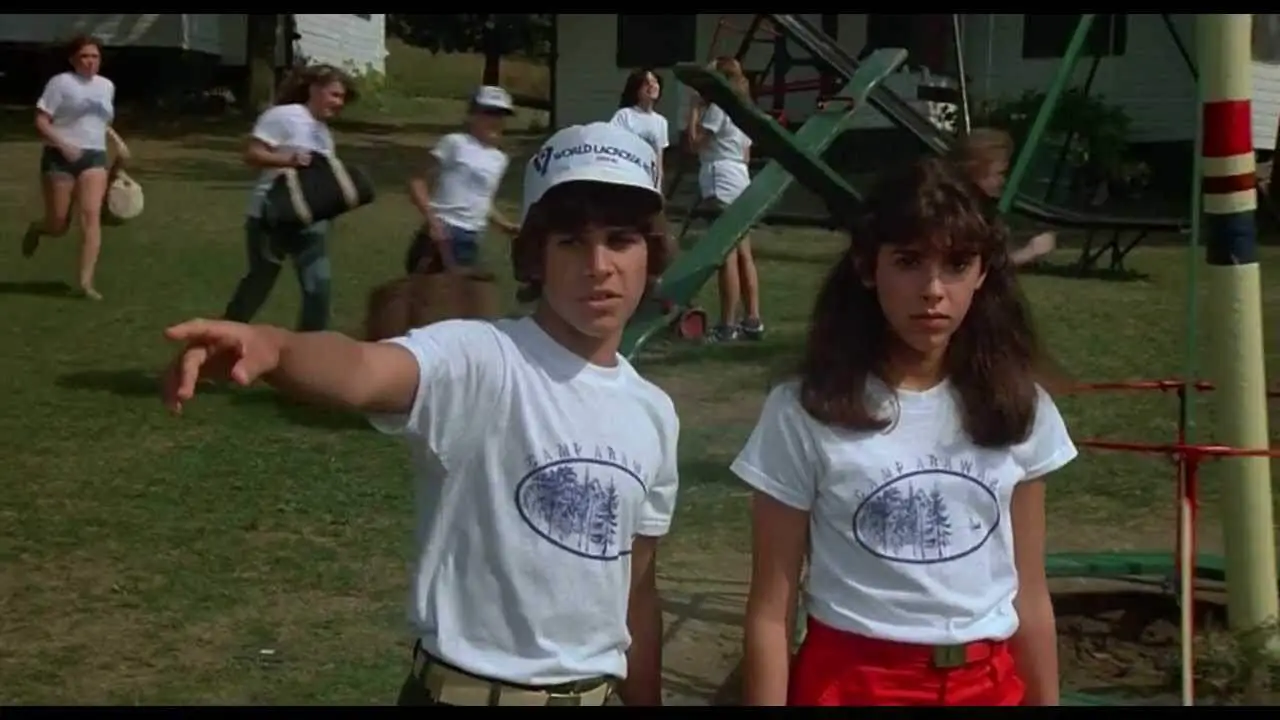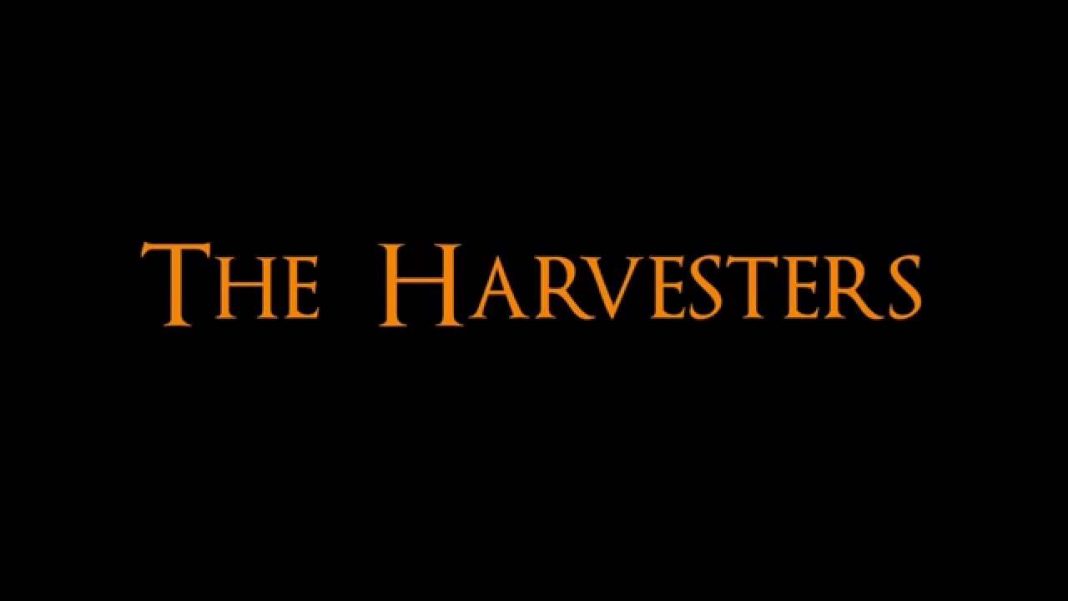In this new, monthly series, a Wicked Horror writer presents an unpopular opinion about a particular genre offering and asks the oft-repeated question, “Is it just me?” In this installment, Joey Keogh argues why The Babadook does not live up to the hype and should not be held up as some sort of benchmark to which all future genre flicks are judged, but rather taken for exactly what it is: a family drama with a spook who turns up about four times total.
Australian director Jennifer Kent’s indie debut The Babadook perhaps the most talked about and well-received horror release of 2014. Topping the majority of Best Of lists come year end, legendary critic and lifelong horror fan Mark Kermode even went as far as making it his #1 pick across all genres (to put that into perspective, he considered it better than Boyhood, Gone Girl, Interstellar and a host of other incredible movies). The Babadook was, by all accounts, the little indie that could, managing to Kickstart itself into production and subsequently eclipsing the attention give to mainstream, big budget offerings like Annabelle and The Guest along with other independent fare such as Cheap Thrills and Blue Ruin. To top it all William Friedkin, the man behind The Exorcist (AKA one of the scariest movies of all time) described it, in an interview with The Guardian, as the most frightening film he’d ever seen.
The film had its detractors, of course, but they were few and far between, not to mention noticeably quiet. When you mention The Babadook, in casual conversation or otherwise, the usual response is for people (both horror and non-horror fans) to coo over it, or regale you with stories about how it stopped them sleeping for weeks. Horror filmmaker Joe Lynch explained on the year-end episode of his podcast The Movie Crypt that The Babadook was “overhyped” and did nothing for him because it couldn’t possibly live up to its own expectations. But even this isn’t necessarily a negative review. If anything, Lynch is giving the film a pass for disappointing him because of the buzz surrounding it. Given that Australia is typically known, at least when it comes to modern horror, for gory torture porn oddities such as Wolf Creek, or The Loved Ones, perhaps audiences were just thrilled to finally be given the chance to enjoy a slow-burn, psychological thriller from the land down under. But is that really what it is?
The film’s Kickstarter page describes The Babadook as: “a psychological horror about a single mother who becomes possessed by a monster that wills her to kill her 6-year-old son. In the tradition of Polanski’s classic domestic horrors (Rosemary’s Baby, The Tenant, Repulsion), The Babadook has a distinctly bizarre and surreal edge”. I first caught it at Frightfest 2014, almost six months before the theatrical release. The trailer was a spooky, spine-tingling shocker loaded with intrigue and suggestion about the horrors contained within, and I was stoked to finally get a chance to spend ninety minutes in the company of Mister Babadook. The flick played on the final, late-night slot of the second day and, after it’d finished and I found myself not just underwhelmed but disappointed by what I’d seen, I first blamed the timing. Late-night slots should be reserved for films like Wolfcop, Zombeavers or Stage Fright (all of which occupied one on the other nights of the festival, to a rapturous reception) that are fun, silly, and maybe even a little schlocky.Related: Hereditary is Overrated and Doesn’t Live Up to All the Hype
Upon re-watch, however, I didn’t just find The Babadook dull and uninspiring, I actively disliked it. First off, it’s not scary, atmospheric or tense, it’s a repetitive, depressing slog and there’s nothing particularly exciting about it. It’s not a horror movie. Rather, it’s a family (melo)drama with a ghoul attached and the suggestion of frights (particularly in the brilliant trailer) that never quite materialise. The book, in which Mister Babadook first appears, is a genius creation, the stuff of nightmares, but unfortunately he features in it more than in the actual film. In fact, the big bad Babadook doesn’t even make his presence known for the first half of the movie, which begs the question – why even bother with him at all, aside from as a marketing ploy of course? Overall, The Babadook appears around four times total, and only really elicits one great jump scare. Considering the movie devolves into little more than a (bad) suburban possession thriller, there isn’t really much need for him at all. It easily could’ve been made with any kind of paranormal presence, and the results would’ve been exactly the same. So, why the hell isn’t The Babadook about the goddamned Babadook?
The other huge, glaring issue with the film is the toxic, abusive central relationship between mother and son. It boasts a fine performance from Essie Davis, as the mother, but the only reason she’s had plaudits heaped upon her is because the woman somehow manages not to strangle her demon of a child – who, to be honest, is far more intimidating than poor ol’ Mister Babadook. Samuel (played by Noah Wiseman) suffocates his poor mother from the outset, often physically. He shrieks pretty much everything he says, wrecks their home, pushes his cousin out of a tree-house, brings weapons to school, consistently disobeys his mother, pushes her over while screaming “DO YOU WANNA DIE!” and even assures her The Babadook is going to get her. Are they working together or something? Is he not scared of The Babadook? Why does he want his mother to suffer so badly, when she’s doing the best she can to raise him after losing his father, quite literally, the moment he was born?
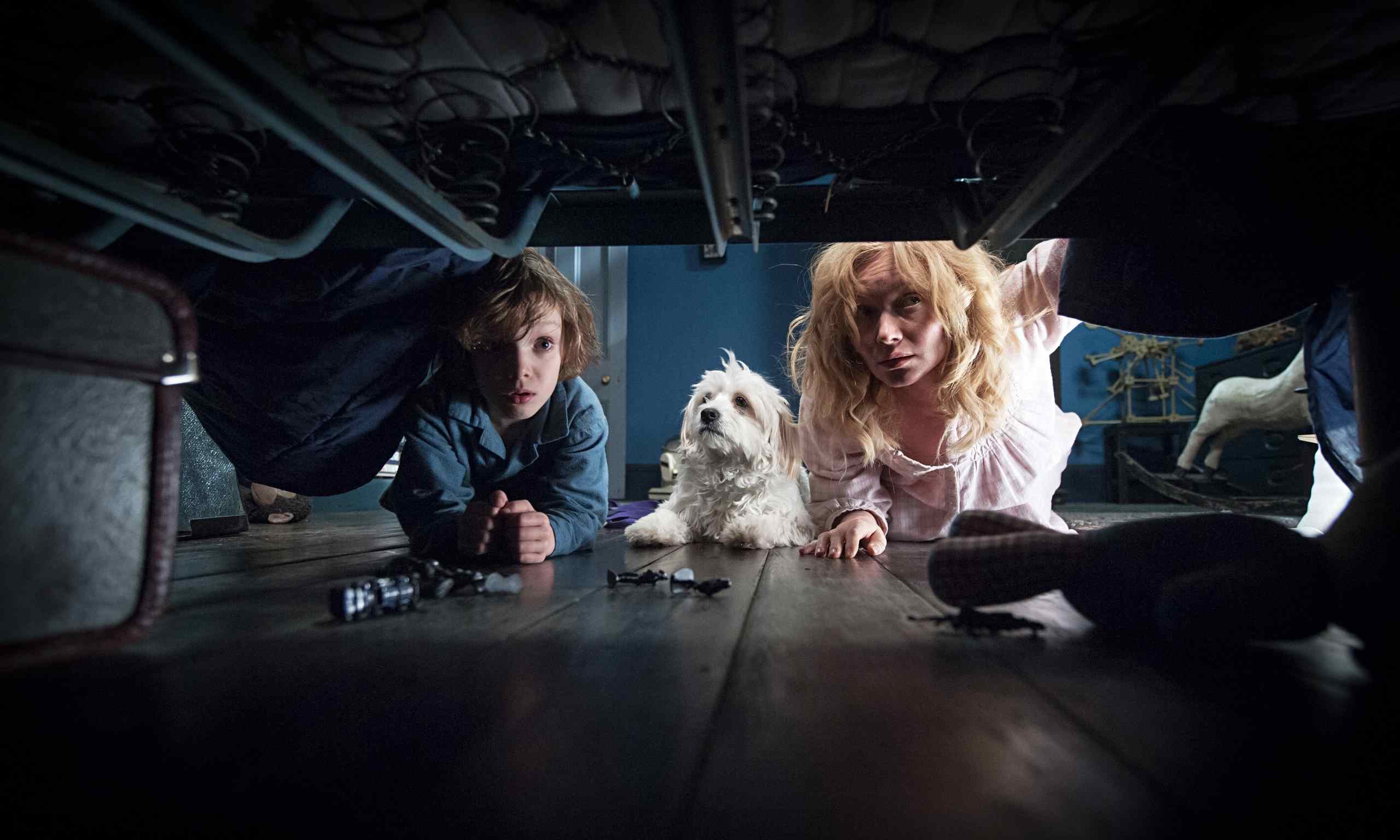 The most disturbing element to their relationship (more disturbing than any of the so-called “horror” traits of the movie) is how easily Samuel manipulates his mother, cooing that he doesn’t want anything to happen to her, stroking her face and telling her that he loves her so that when the school (rightfully) complains about him acting up, she sides with the little brat instead of the authorities. This sets off a sequence of events during which the poor mother cuts off everyone who cares about her, eventually stranding herself and her child in their dark, creepy house as she gets less and less sleep and the walls start to close in on her. In fact, The Babadook could feasibly be a study of sleep-deprivation, stress, PTSD or even the trauma and often lifelong grief attributed to losing a loved one so suddenly. It doesn’t need a ghoulish presence to be any of those things, either. Suggestions have also been made that the creature could be seen as a metaphor for loss, or even depression, but to me this is giving it more credit than it’s due. The Babadook isn’t there from the beginning, so unless he’s feeding off their unhappiness (it’s fair to say he isn’t, based on the ending) this really makes little sense.
The most disturbing element to their relationship (more disturbing than any of the so-called “horror” traits of the movie) is how easily Samuel manipulates his mother, cooing that he doesn’t want anything to happen to her, stroking her face and telling her that he loves her so that when the school (rightfully) complains about him acting up, she sides with the little brat instead of the authorities. This sets off a sequence of events during which the poor mother cuts off everyone who cares about her, eventually stranding herself and her child in their dark, creepy house as she gets less and less sleep and the walls start to close in on her. In fact, The Babadook could feasibly be a study of sleep-deprivation, stress, PTSD or even the trauma and often lifelong grief attributed to losing a loved one so suddenly. It doesn’t need a ghoulish presence to be any of those things, either. Suggestions have also been made that the creature could be seen as a metaphor for loss, or even depression, but to me this is giving it more credit than it’s due. The Babadook isn’t there from the beginning, so unless he’s feeding off their unhappiness (it’s fair to say he isn’t, based on the ending) this really makes little sense.
As this is supposed to be a story of possession, in the vein of Polanski, the usual clichés are trotted out to trick us into thinking we’re watching something completely different, including the dog turning on the mother once he cops something sinister is afoot, the electricity going a bit bonkers, a tinkly nursery rhyme score, a fully-clothed bath, an influx of insects that nobody else can see and, naturally, doors closing and opening on their own. The Babadook is being heralded as this new voice in horror, but there’s nothing new about it. The possession angle falls completely flat, as Samuel suddenly turns brave once his mother is possessed, rendering Mister Babadook a moot point in their story. However, this could be taken either as part of the cycle of abuse (he later beats the shit out of her, using various home-made weapons) or simply because he isn’t facing up to the actual creature.
Much has been made about the style of this film, with the usual rubbish about how the picture has a “Gothic” or “German expressionist” feel to it (proving, once again, that film school grads will use any opportunity available to them to spout something they think will make them seem smarter than regular fans). Sure, it looks dark and moody, and there are some spiky shadows on the walls but that doesn’t make it a masterpiece, it makes it highly derivative. The pallette is all greys, dark blues and blacks but it only adds to the dullness, not the scare factor. The design of the monster is good, but he’s nothing new or special. The knife hands are Freddy Krueger, the ambling walk and shadow are straight up Nosferatu. Are we supposed to buy into him because, much like Malibu Stacy, he has a new hat?
When we get a prolonged shot of The Babadook, it’s as a CGI blur on the ceiling that looks a bit like quick-spreading mould. He may groan and squeal and crackle, but the sound is more effective than the sight – it almost would’ve been better to leave him unseen, as a mystery, and allow us to conjure up our own, horrid monster in his place. It’s difficult to understand why the mother is so terrified of the creature because he doesn’t actually do anything of note. There is no mythos from which to draw fear, and she barely glimpses him (standing behind her elderly neighbour, in probably the best shot of the film) before he shows up, full force in front of her. Where’s the threat, or the intrigue, apart from in the book?
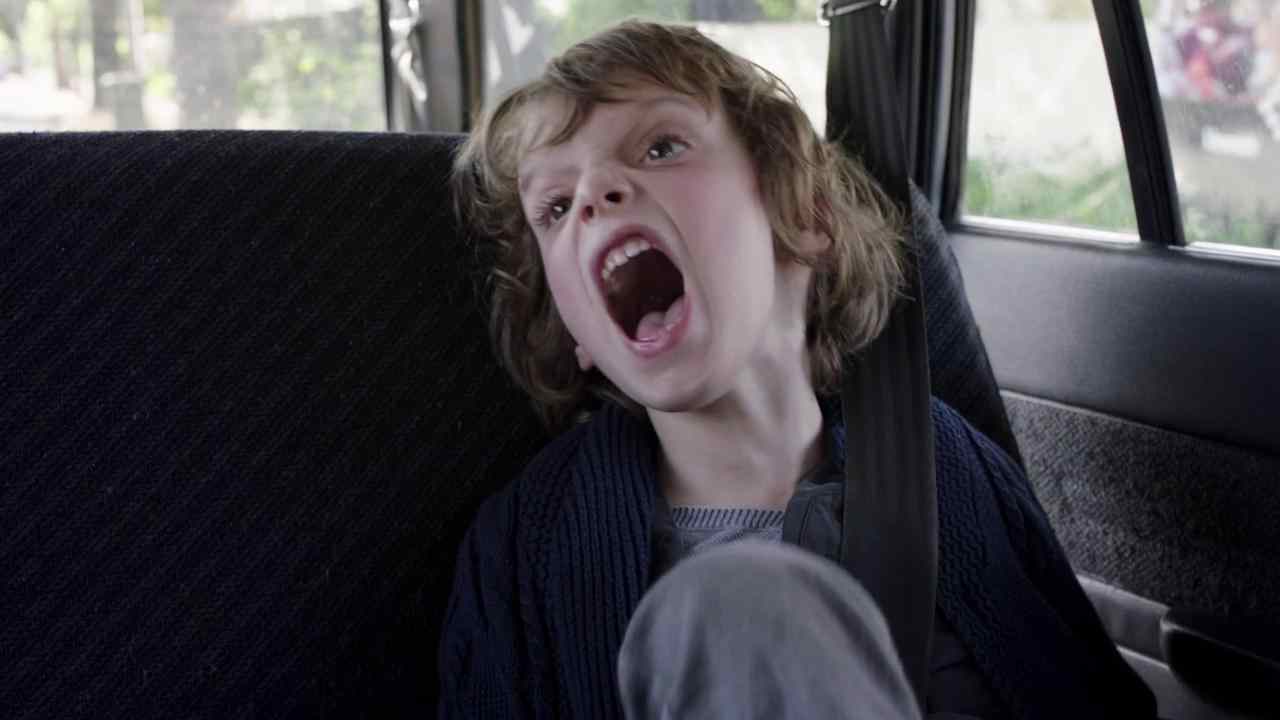 Wes Craven’s genre-defining masterpiece is a rather obvious influence here. As well as Mister Babadook bearing more than a passing resemblance to Mister Krueger, he is also dispensed with in exactly the same fashion. The mother, much like Nancy, defies his power by refusing to believe he’s real, eventually standing up to him. Considering The Babadook is, supposedly, unstoppable, the dynamic duo manages to defeat him remarkably easily. This isn’t an issue in A Nightmare On Elm Street because Craven makes Krueger an instant, malevolent presence, introducing us to him in the opening sequence of the film. Mister Babadook, as previously discussed, barely appears at all. He’s also subsequently locked up in the basement as a pet. This may be simply setting up the sequels, but considering he only really has a book to his name, it’s difficult to really care who he haunts next.
Wes Craven’s genre-defining masterpiece is a rather obvious influence here. As well as Mister Babadook bearing more than a passing resemblance to Mister Krueger, he is also dispensed with in exactly the same fashion. The mother, much like Nancy, defies his power by refusing to believe he’s real, eventually standing up to him. Considering The Babadook is, supposedly, unstoppable, the dynamic duo manages to defeat him remarkably easily. This isn’t an issue in A Nightmare On Elm Street because Craven makes Krueger an instant, malevolent presence, introducing us to him in the opening sequence of the film. Mister Babadook, as previously discussed, barely appears at all. He’s also subsequently locked up in the basement as a pet. This may be simply setting up the sequels, but considering he only really has a book to his name, it’s difficult to really care who he haunts next.
The most disturbing element regarding the ending of the film, however, is that Samuel still hasn’t learned his lesson. When a couple of social workers turn up to check in on him, he humiliates his mother in much the same way he did earlier in the movie, essentially making out that she’s an abusive parent. Although, it seems that the real abuser is actually the spoiled, selfish, borderline psychotic child, for whose death I can’t help but wish. Horror lives or dies on whether we can empathise with the protagonists because if we can’t put ourselves in their shoes we won’t be scared. In the case of The Babadook, I find it impossible to care what happens to either of these hideous people. Samuel is a brat who should be strangled, and his mother deserves to be alone and miserable because she keeps giving in to him and refuses to accept help from, well, anyone beside her kindly neighbour (who we all know isn’t going to discipline him anyway).
All things considered, The Babadook isn’t a very good horror movie, or even really a horror movie at all. It isn’t scary in the slightest, the creature doesn’t show up for much of the film and, when he does, is a massive disappointment who is about as scary as the hat and coat he leaves behind. No tension is built up and the ending isn’t just predictable and nonsensical, it’s dull. There’s no arc for either character, as they both end up just as horrible as when the film began. The flick could be broadly taken as a study of the effects of trauma, sleep deprivation and extreme stress but, on at least one of those counts, it’s been done before and better.
This should not be heralded as a new voice in horror, in particular, as it’s nothing new. Even just in the context of last year, there were a number of genre offerings that pushed the boundaries further including, but not limited to, Cheap Thrills, Late Phases, Blue Ruin, and even Tusk which, although flawed, at least attempted something different.
There are no particularly striking visuals here (and all of them are in the trailer, anyway), no standout moments of terror and the performances, although strong, aren’t memorable. Its worst crime, from a horror perspective, is squandering its monster who, in the end, looks weak because he’s beaten with very little effort. Although not nearly as offensive or mind-numbing as something like Ouija, The Babadook still does not justify the hype.
It’s a good first try on Kent’s behalf but it references everything that’s come before and, if a sequel is indeed on the way, the makers of it are going to have to work extra hard to establish The Babadook as a genuine threat, and his prey as victims worthy of our concern, before I pay any attention to it. Or maybe it’s just me..?

